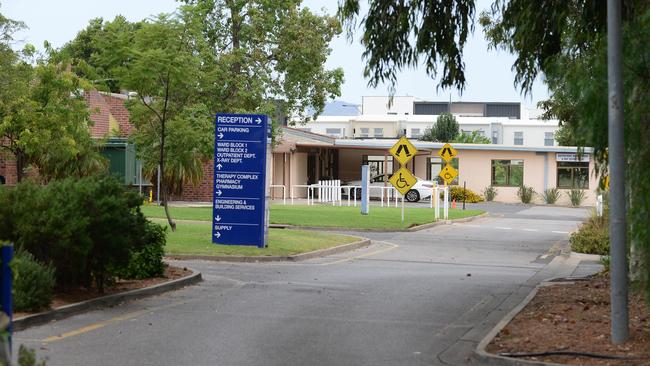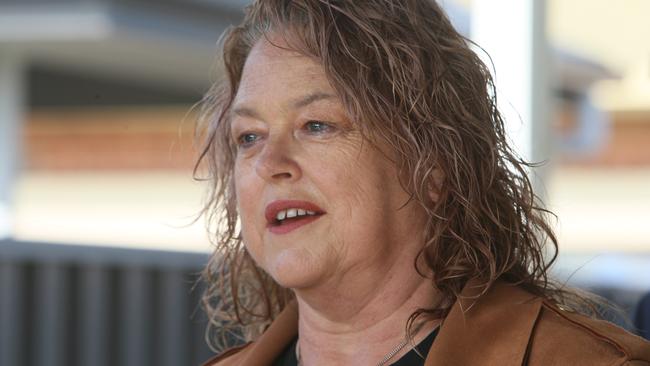Disability care ‘substandard’: Damning report finds dozens of failures in Transition to Home service
A shock new report has unveiled “substandard” care for some of SA’s most vulnerable patients, from staff wrongly administering drugs, to carers spending “a lot of time” on their phones.
SA News
Don't miss out on the headlines from SA News. Followed categories will be added to My News.
Some of South Australia’s most vulnerable patients are subjected to “substandard” care at government disability care facilities, a damning official review has found.
In a report that shocked ministers, a catalogue of almost 100 failings have been uncovered in the $10.2 million Transition to Home (T2H) service, which provides temporary accommodation for discharged NDIS hospital patients.
The two-month state government review, launched in the wake of a shocking neglect case of one facility resident, found faults in all “key practice standards”.
The scathing report, published on Tuesday, found poorly-trained staff wrongly administered drugs, carers spent “a lot of time playing” on their mobile phones, rooms compromised privacy and dignity while “noisy” patients were hidden during management visits.
In the past 18 months, 1829 incidents were recorded, including infection problems, emergency calls, injuries, assaults, and drug or medication errors. The inquiry recommended ambulance call outs start being reported.
In April, police investigated after a patient was found with poor hygiene after being left unattended. The staff member was suspended before the case was only dropped when a safety system was closed.
Despite at least two Covid-19 outbreaks in June this year and December 2021, pandemic management plans have not been updated since April 2020, virus staff training is not tracked and no coronavirus risks recorded.
The Human Services Department, with SA Health and the National Disability Insurance Agency, fund 53 beds at the Repat Hospital in Adelaide’s south and St Margaret’s Centre, Semaphore.
The western suburbs facility replaced a similar service at Hampstead, where appalling treatment of a Mr D sparked a Health and Community Services inquiry.
That case had disturbing similarities to neglect victim Annie Smith, who was left to die in squalid conditions and isolated at her eastern suburbs home at Kensington Park.


The latest review criticised the T2H service, established by the former Liberal government in March 2020 at the height of the pandemic, for operational “gaps”, “unresolved” staff concerns, poor patient and discharge records, no plans for escapees, complex rules with no oversight or audits, procedures still in draft and “toxic” leadership.
“There are inadequacies in training, day-to-day practices and supervision resulting in substandard care in areas such as hygiene, continence management and infection control,” the 42-page report found.
“External NDIS service co-ordinators do not always regularly engage with clients, impacting on … outcomes and satisfaction.
“Long delays in successful transition result in poor impact on both client and staff morale.
“Clients, families and advocates routinely communicate their confusion and frustration at the gap between their … expectations and the reality, particularly due to ongoing uncertainty and delays in resolving NDIS support and accommodation.”
Investigators interviewed staff, patients or their families, and senior government officials, visited sites, while also reviewing various government reports and investigations.
They reported a system that “chokes with the layers of different NDIS rules”.
Twelve key practice standards were found to be only “partially met” and required an overhaul, investigators found.
The report found a poor complaints system that was hard to use, had no clear direction, independent oversight or proper staff training – resulting in an under-reporting of complaints.
“Staff are not trained to think about consequences,” investigators reported.
An expected maximum stay should be 90 days, but the current average wait is more than double while some patients are not discharged for almost 18 months and left in "no man’s land”, the review found.
It also found more than 40 patients were not given appropriate independence, amid a workplace culture that normalised disabled clients’ refusal to take medicine, the inquiry found.
Examples of “negligent” care published in the report included:
■ A patient who was given a “chemical restraint” to prevent them escaping at night in breach of a doctor’s orders;
■ Another patient was repeatedly given laxatives despite suffering diarrhoea;
■ A diabetic patient stockpiled food, which posed a safety and health risk;
■ Another patient’s feeding tube was blocked but the service refused to readmit them until staff training was finished despite officials “understanding the hospital was under pressure”. Service bosses refused to budge even when the patient returned from hospital in an ambulance.

The report said rooms were also hindering care: “The new Robust units at (the Repat) are stark and confronting and the current bright white colour and fit-out are unlikely to contribute to calming a person with challenging behaviours.”
Despite bureaucrats meeting frequently in a range of operational committees, the report found it was “unclear where quality and safety metrics are discussed”.
“Despite raising these concerns, it became evident during the review that corrective actions by management in response to key reports and investigations … lack appropriate timeliness and effective resolution of the gaps and risks that were identified,” the report stated.
A “shocked” Human Services Minister Nat Cook, who ordered the formal review in April, labelled the 13 main findings as “terrible”.
Accusing the former Liberal government of “failing people with a disability”, she said the government was acting on the findings with more staff, better training, especially in mental health first aid, and overhauling governance.
She criticised attempts to solve a “problem quickly” that instead undermined staff and residents “with complex health and disability needs”.
“I wish we did not need these places,” she said. “People are being placed in the most inappropriate of situations for far too long. We have to do better.”
Opposition spokeswoman Michelle Lensink, who was minister when it launched, said her govermment “made significant reforms and improvements to all DHS accommodation services, which included a broadening of critical client incidents criteria”.
“We remain hopeful Nat Cook can continue our meaningful progress now that families and clients feel safer to report issues than in the past,” she said.
The authors, Flinders University associate professor Christine Dennis, a former chief executive of the Australian Council on Healthcare Standards and Southern Adelaide Health Service, and Greg Adey, a leading aged care, disability services and nursing expert, declined further comment.





